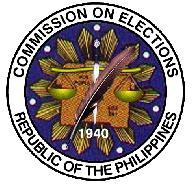Comelec cuts total airtime on TV to 120 minutes

For the first time, the election body has also set regulations on election propaganda online, which has a wider reach and has become a powerful tool for engaging and connecting with the public.
Under Comelec Resolution No. 9615, a candidate running for a national post is only allowed a total of 120 minutes of airtime on TV and 180 minutes for radio in all networks during the 90-day campaign period beginning Feb. 12.
Local candidates are given 60 minutes of TV and 90 minutes of radio advertising throughout the 45-day campaign period starting March 30.
The new resolution, which radio and TV networks may not be happy about, scrapped an old rule that allowed candidates their respective allotted airtime for each TV or radio network.
“For candidates/registered political parties for a national elective position, not more than an aggregate total of 120 minutes of television advertising, whether appearing on national, regional or local, free or cable television, and 180 minutes of radio advertising, whether airing on national, regional, or local radio, whether by purchase or donation (will be allowed),” stated the resolution.
Article continues after this advertisementJoint ads
Article continues after this advertisement
Local candidates and political parties will be permitted “not more than an aggregate total of 60 minutes of TV advertising, whether appearing on national, regional, or local, free, or cable television and 90 minutes of radio advertising, whether airing on national, regional or local radio whether by purchase or donation.”
“Tandem advertisements” pertaining to ads of a party-list group carrying a candidate or “joint advertisements” that feature multiple candidates will be counted against the airtime limits allotted for each of the candidates, according to the new rule.
“Tandem ads or joint ads will be charged to airtime of each candidate so appearing,” stressed Comelec Chairman Sixto Brillantes Jr. in an interview with reporters.
Under the resolution, the cost of these advertisements will also be considered as expenditures of each of the candidates, regardless of whoever paid for them and for whom the said materials were donated, Brillantes said.
However, appearances on any “bona fide” newscast, interview and documentary that can be considered “incidental” to the presentation of the subjects covered by news events including those sanctioned by the Comelec will not be deemed as campaign propaganda, the Comelec said.
But the poll body noted that for TV appearances to be considered “bona fide,” broadcast stations and other media entities must seek prior approval from the Comelec and must ensure that all candidates and parties will be given equal opportunities to promote their candidacy.
Online campaigning
In the same resolution, the Comelec presented for the first time rules on campaigning online or over the Internet.
It enumerated ad specifications and dimensions for posting online. The Comelec said online advertisements would not be allowed to be published more than three times in a week per website during the campaign period.
“For this purpose, the exhibition or display of the online advertisement for any length of time, regardless of frequency within a 24-hour period shall be construed as one instance of publication,” the resolution stated.
Brillantes said online election propaganda also covered social networking sites such as Facebook and Twitter although they were not mentioned in the resolution.
He said the Comelec would closely monitor campaigns being aired through these sites.
‘Innovative’
“This is new. This is something that is innovative, this social media. We will see how effective it is during the start of the campaign period,” he told reporters.
“Tweets or posts not falling within the scope of personal opinion … paid or promoted tweets and FB posts, paid blogs and PR-ran posts and social media campaign fall under election campaigning,” he added.
Any violation of the rules and regulations on election campaigning is considered an election offense, which under the Omnibus Election Code is punishable with imprisonment of one to six years, the removal of the right to vote and disqualification to run for public office.